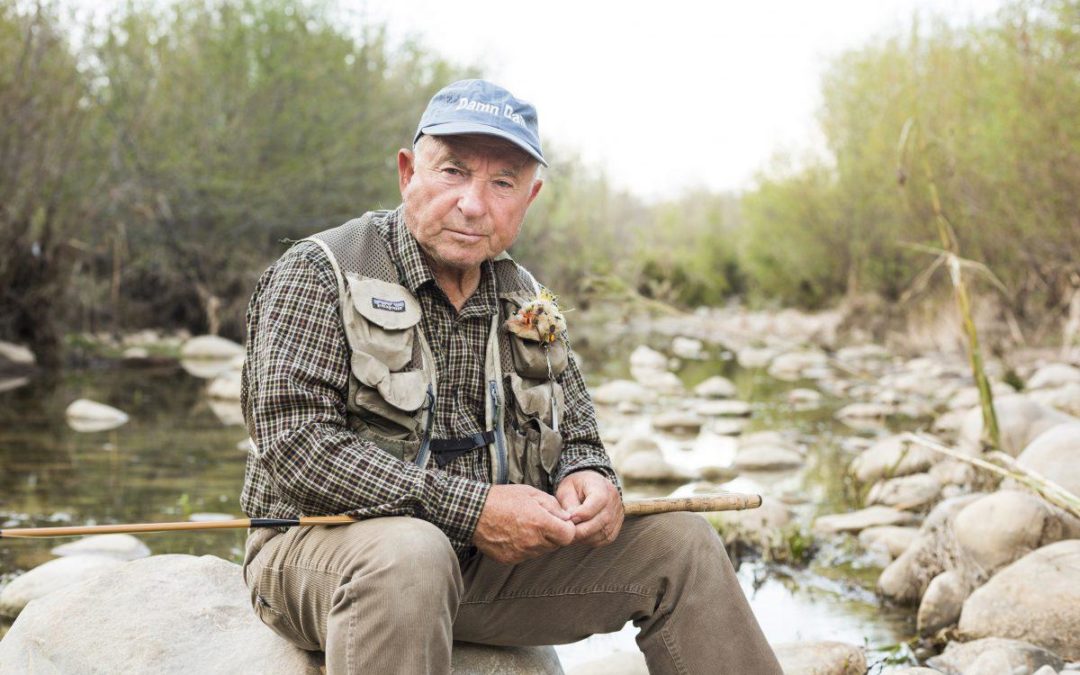The quandary of what to do with a multi-billion-dollar company when you retire is not a problem that many of us will face. However, for serial philanthropist Yvon Chouinard, having spent his lifetime building one of the most valuable outdoor brands on the planet, leaving a lasting legacy that would make the world a better place became his top priority.
Chouinard could have simply sold the company, dedicating all of the profits to philanthropic pursuits. However, how could he be sure that the new owners would preserve his values or working conditions? Instead, Yvon Chouinard took the radical step of giving his company away.
In a letter addressing employees all over the world as well as the company’s loyal customer base, Chouinard explained that he and his family were transferring ownership of Patagonia to two nonprofit entities: the Holdfast Collective and the Patagonia Purpose Trust.
In the letter, Chouinard explained that he never wanted to be in business. He started as a craftsman, making climbing gear for himself and his friends. However, as he began to witness the impact of ecological destruction and global warming, and humankind’s contribution to it, he was inspired to use Patagonia as a proponent for positive change and readdress how business was done. Chouinard sought to do the right thing while making enough money to pay the bills, influencing customers and other businesses, and changing the system along the way.
His Beginnings
Yvon Chouinard was born in Lewiston, Maine, on November 9, 1938. A keen sportsman, he had a particular fondness for tenkara fly-fishing. Translating from Japanese to English as “fishing from heaven,” tenkara is a type of simple rod angling that is primarily used for trout fishing in mountain streams. The method remains relatively rare even among Japanese anglers and was largely unknown outside of Japan until as recently as 2009.
An experienced rock climber, Chouinard began to make and sell his own hand-forged mountain climbing gear in 1957. The venture was so successful it led to the founding of Chouinard Equipment, Ltd. In the late 60s, he joined forces with business partner Tom Frost to improve products and address growing supply and demand issues facing the company. On a visit to Scotland in 1970, Chouinard came up with the idea of wearing rugby shirts while climbing, as he realized the collar prevented the climbing sling from chafing his neck. He began selling the shirts to other climbers, and this led to the founding of Patagonia.
Patagonia’s Start
Patagonia’s first store, Great Pacific Iron Works, opened in 1974 in Ventura, California. Patagonia developed a wide selection of outdoor technical clothing and gear before expanding its apparel to include other sports. It also produced a variety of outdoor gear and athletics products, including sleeping bags and backpacks.
Incredibly popular with anglers around the world, Patagonia produces a variety of apparel designed specifically for fishers, including the Forra wading boot. Engineered to tackle both trails and rivers, the boot incorporates Vibram® Mars sole technology for grip and traction, alongside a sturdy toe box, high ankle, and adjustable, noncorrosive lacing system for durability and support.
For decades, Patagonia has been a proponent of global conservation, taking a proactive role in the fight against climate change and unashamedly challenging corporate and political norms.
Who Are the New Owners?
The Holdfast Collective, one of the company’s new co-owners, is a nonprofit organization created to defend nature and address the environmental crisis. Chouinard gifted 98 percent of the Patagonia company and all non-voting stock to the Holdfast Collective.
Meanwhile, the Patagonia Purpose Trust, which owns the remaining 2 percent of Patagonia, is a nonprofit created specifically to protect the company’s mission and values. Although its shareholding is relatively modest, crucially, the Patagonia Purpose Trust owns all of the company’s voting stock, providing the trust with the power to choose a board of directors for the company and retain control of all key corporate decisions, including proposed changes to Patagonia itself.
Long-Term Plans
After half a century of building and growing the company, Yvon Chouinard will operate the Patagonia Purpose Trust, working alongside his wife and two adult children to preserve Patagonia’s $100 million annual profits, using this funding to combat climate change and protect undeveloped land around the world.
The move comes amid increasing scrutiny on corporations and billionaires. While the objective of making the world a better place is common corporate rhetoric, in reality, many companies actively contribute to the very problems they seek to address.
In keeping with his lifelong appreciation of nature and longstanding disregard for business norms, Chouinard has relinquished the family fortune. Speaking with The New York Times, he mused that the move might influence a new type of capitalism that does not culminate in a “few rich people and a bunch of poor people.” He explained that his goal was to give away the maximum amount of money to people actively involved in saving the planet.

